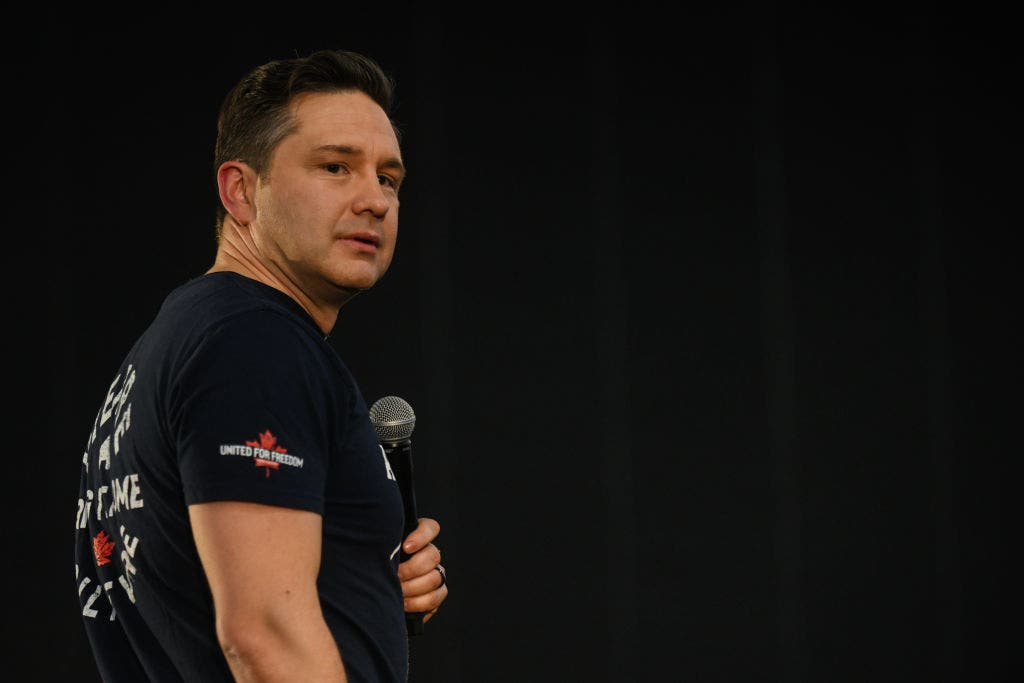Justin Trudeau’s surprise resignation as leader of the Liberal Party of Canada has set the stage for a potential showdown between his successor and the ascendant Conservative leader, Pierre Poilievre. Poilievre, who assumed leadership of the Conservative Party in 2022, has witnessed a surge in popularity, capitalizing on growing dissatisfaction with Trudeau’s long tenure. The Conservatives now boast nearly three times the support of committed voters compared to the Liberals, positioning them as strong contenders for victory in the next federal election. Poilievre’s “Bring home the Canadian dream” campaign theme resonates with Canadians concerned about affordability and economic stability, while he has framed the Liberals as proponents of “authoritarian socialism” and “utopian wokeism,” appealing to those wary of progressive social policies.
Poilievre’s populist rhetoric has drawn comparisons to former US President Donald Trump, though the Canadian Conservative leader has firmly rejected the idea of Canada becoming the 51st US state. Despite diverging on this key issue, Poilievre acknowledges Trump’s aggressive negotiating style and anticipates needing to navigate a complex relationship with the US if he becomes Prime Minister. He has emphasized the importance of securing a mutually beneficial trade deal with the US while simultaneously advocating for Canadian interests, including addressing what he perceives as unfair discounts on Canadian oil and gas exports.
The Conservative Party’s policy platform centers on several key priorities. Poilievre has pledged a “crackdown on crime” with stricter sentencing for repeat offenders. He plans to expedite approvals for energy projects, including oil refineries, LNG plants, and nuclear facilities, aiming to bolster Canada’s energy independence and strengthen its economic relationship with the US. On immigration, the Conservatives intend to renegotiate the Safe Third Country Agreement with the US to address concerns about illegal border crossings. Foreign policy-wise, the party has affirmed its recognition of Jerusalem as Israel’s capital, signaling a potential shift in Canadian diplomatic relations.
The timing of the next Canadian election remains uncertain, but it could occur as early as this spring. With the House of Commons scheduled to resume sitting in March, opposition parties, including the Conservatives, may attempt to topple the minority Liberal government through a vote of no-confidence. Such a move would trigger a national election, giving Poilievre an opportunity to capitalize on his party’s current momentum. In response to Trudeau’s resignation, Poilievre reiterated his party’s commitment to “taking back control” of various policy areas, including borders, immigration, spending, and crime. He emphasized a focus on securing borders, strengthening the military, and prioritizing Canadian interests.
Poilievre’s rise to prominence marks a significant shift in the Canadian political landscape. His populist message, combined with growing disillusionment with the Trudeau government, has resonated with a substantial portion of the electorate. He has effectively positioned himself as a champion of the “common people,” contrasting his approach with what he portrays as the Liberal Party’s elitism and radical ideology. His emphasis on economic pragmatism, tough-on-crime policies, and a more assertive foreign policy stance distinguishes him from Trudeau’s more internationally focused and socially progressive agenda.
The upcoming leadership race within the Liberal Party will be crucial in determining the party’s future direction and its ability to counter Poilievre’s appeal. The next Liberal leader will face the challenge of rebuilding public trust, addressing economic anxieties, and articulating a compelling vision for Canada that can compete with the Conservative Party’s populist narrative. The outcome of the next federal election will likely hinge on the Liberal Party’s ability to adapt to this changing political climate and present a viable alternative to Poilievre’s brand of conservatism. The contest for the hearts and minds of Canadian voters is set to intensify as the country prepares for a potentially transformative election.

